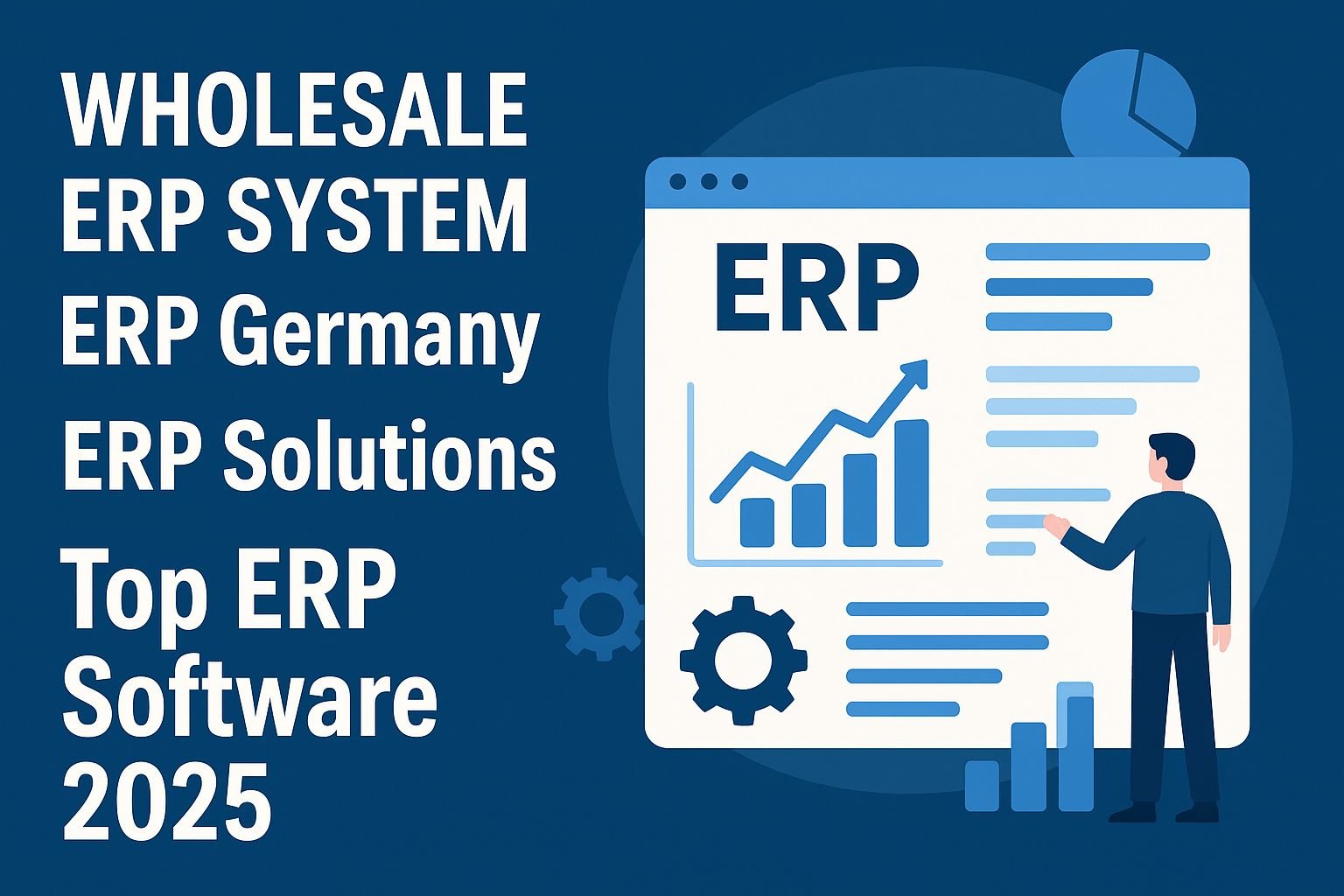In today’s fast-paced business landscape, managing a wholesale operation demands efficiency, precision, and scalability. A robust Wholesale ERP System is the backbone of streamlining processes, optimizing resources, and driving growth. As businesses strive to stay competitive in 2025, selecting the right ERP Solutions is critical for seamless operations across supply chains, inventory, and financials. This guide explores the top ERP Software 2025 trends, features, and considerations to help wholesalers choose the best system for global success.
Why Wholesale Businesses Need ERP Systems
- Streamlined Operations: Automate repetitive tasks like order processing and invoicing to save time and reduce errors.
- Real-Time Data: Gain visibility into inventory levels, sales trends, and financial performance for informed decision-making.
- Scalability: A Wholesale ERP System grows with your business, supporting expansion into new markets or product lines.
- Improved Collaboration: Connect departments and external partners for seamless communication and data sharing.
Key Features to Look for in a Wholesale ERP System
| Category | Key Features | Benefits |
|---|---|---|
| Inventory & Warehouse Management |
|
|
| Order & Supply Chain Management |
|
|
| Financial Management |
|
|
| AI & Analytics Integration |
|
|
| Cloud-Based Flexibility |
|
|
| Industry-Specific Customization |
|
|
Top ERP Software Trends for 2025
| Trend | Description |
|---|---|
| AI-Powered Automation | Automates decision-making, quality checks, and prioritization to boost efficiency. |
| Two-Tier ERP Strategy | Blends enterprise and subsidiary systems for flexibility and reduced costs. |
| Mobile Accessibility | Empowers field teams with ERP access via mobile devices. |
| Sustainability Focus | Tracks carbon footprint and promotes eco-conscious operations. |
| IoT Integration | Enables real-time monitoring of inventory, assets, and warehouse conditions. |
How to Choose the Right Wholesale ERP System
- Assess your current process pain points.
- Ensure the ERP system scales with your growth.
- Decide between cloud-based, on-premise, or hybrid deployment.
- Check compatibility with existing tools like CRM or eCommerce.
- Opt for intuitive, user-friendly interfaces.
- Review customer support and vendor expertise.
Benefits of Investing in a Top ERP Software 2025
- Increased operational efficiency and reduced costs.
- Better strategic decisions from real-time analytics.
- Improved competitiveness in global markets.
- Higher customer satisfaction and order accuracy.
- Optimized inventory and supply chain performance.
Challenges to Watch Out For
- High customization and training costs.
- Complex system integration.
- Potential resistance from employees without proper training.
Conclusion
In 2025, a Wholesale ERP System is essential for operational excellence. By investing in the right ERP software, wholesalers can streamline operations, improve efficiency, and succeed globally in a dynamic market.

